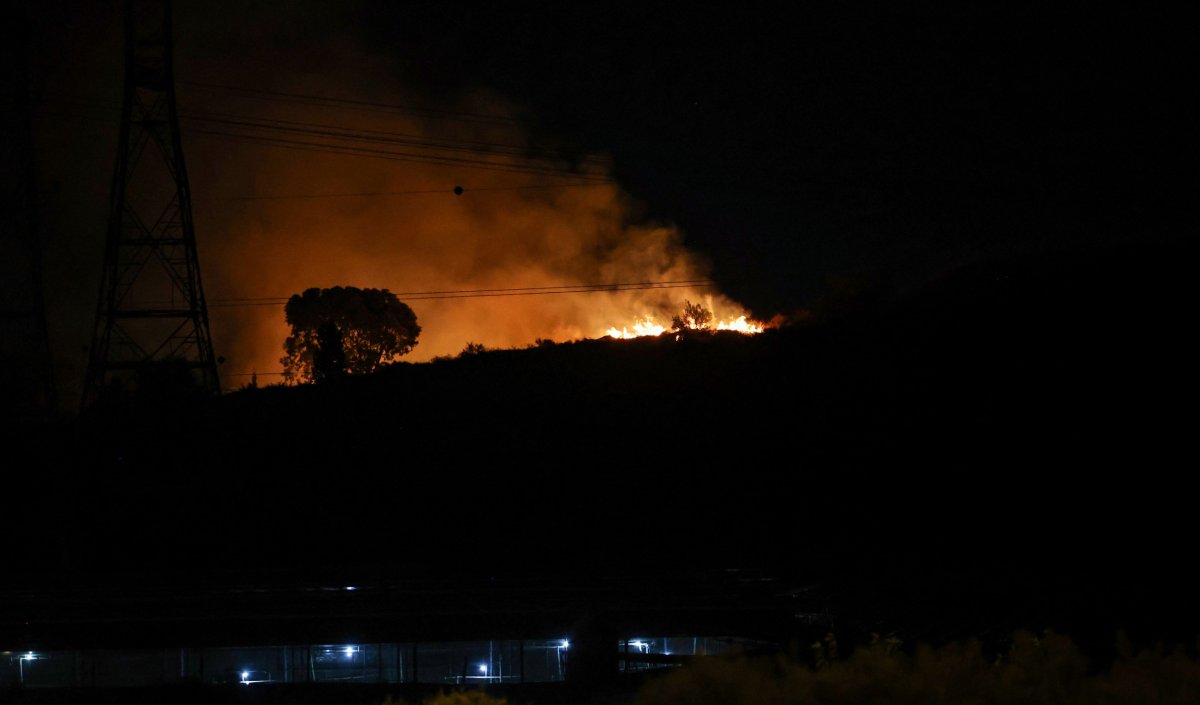Iran has said it has the right to defend itself following Israeli airstrikes in retaliation for the Islamic republic's missile strikes earlier this month, but one Iranian expert has told Newsweek that Tehran may not want to escalate hostilities immediately.
Multiple explosions were heard in Tehran and in the western province of Ilam and southwestern Khuzestan on Saturday in what Israel described as "precise and targeted strikes" on military sites.
The strikes followed weeks of anticipation over how Israel would respond to an Iranian barrage on October 1, which Tehran said was to avenge the killings of Hamas leader Ismail Haniyeh, Hezbollah chief Hassan Nasrallah and Iranian commander Abbas Nilforoushan.
Tasnim, a semiofficial Iranian news agency, reported there would be a "proportional reaction" to Israel's strikes.
The Iranian Foreign Ministry said on Saturday that there had been "limited damage" and that the country is "entitled and obliged to defend itself," a choice of words that Hamidreza Azizi, a research fellow at the German Institute for International and Security Affairs think tank in Berlin, said was significant.
"That diplomatic position doesn't necessarily mean that Iran is going to respond in a direct or massive way," he told Newsweek. "Iranian media is downplaying the attack, so that might be an indication that Iran doesn't want to escalate at the moment, but we haven't heard from any high-ranking Iranian official yet."

However, Iran saying there was damage to its military sites "might be a way to keep the door open to a potential response," Azizi said. "So if in the follow-up assessments or in political discussions within the leadership they decide that there needs to be a response, that might be a way to justify that."
"We shouldn't forget that two Iranian army officers have been killed, and Iranian officials have in the past said this would be a red line," he continued.
Newsweek has contacted the Iranian Foreign Ministry for comment.
Azizi said other factors Tehran would weigh up include the increasing American presence in the region, as demonstrated by the deployment of a squadron of F-16s; Washington's warnings toward Iran about escalation; and how the situation on other fronts in the region evolves in the next few weeks.
The attack risks pushing the rival states closer to all-out war amid spiraling violence, with militant groups backed by Iran—such as Hamas in Gaza and Hezbollah in Lebanon—are already at war with Israel.
Azizi said that Israeli officials have indicated the operation in Lebanon might soon end, and "if that happens, and if there is some sort of a ceasefire in Gaza, we may expect, at least for some time, the situation to calm down."
He continued: "My guess is that if Israel stops at this point, for now, Iran is not going to respond—at least until after the U.S. election. And then, based on a new threat assessment—because if Trump comes [into office], I would expect the Iranian threat perception to rise again, and it may impact calculations."

















:quality(85):upscale()/2024/04/24/878/n/3019466/36c5693c662965c5d1ce91.72473705_.jpg)


 English (US) ·
English (US) ·